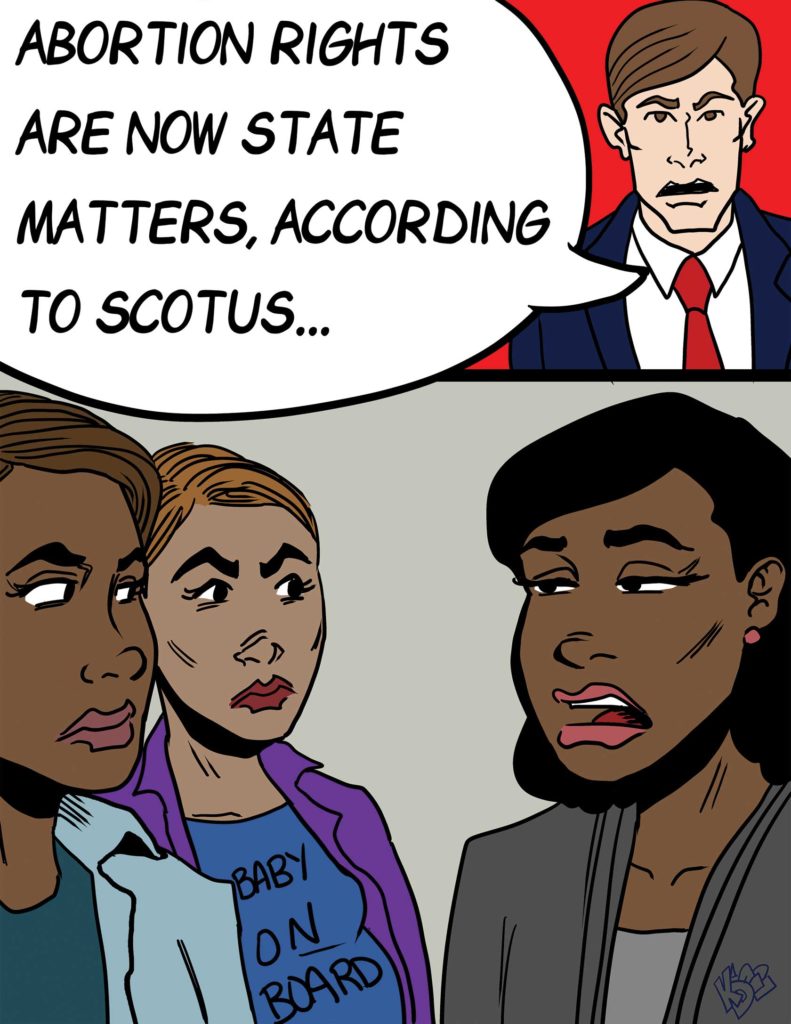
Even while they did not have great regard for Congress and the Presidency, many Americans have had the fondest opinion of the U.S. Supreme Court. People have viewed the court as the constitutional authority to curtail the deviancy of other branches of government and assure the constitutional rights of citizens. Of course, people from different groups objected to Supreme Court rulings that did not support their objectives, but now popular opposition to SCOTUS seems to be growing.
To most Blacks, SCOTUS was simply another arm of racial oppression. In the Dred Scott case of 1857, Chief Justice Roger Taney ruled that “a Negro has no rights which the white man is bound to respect.” At that time, slavery was an immutable status. In 1896, the Supreme Court ruled in Plessy v. Ferguson that racial segregation in public places was permissible as long as the accommodations were equivalent.
Protests by Blacks later induced the Court to modify some rulings on race. In 1954, SCOTUS held in Brown v. Board of Education that racial discrimination in public schools was unconstitutional. The court also reversed the earlier ruling in Plessy that segregation was constitutional. It took 58 years to acquire that wisdom.
Recently the Supreme Court issued two decisions that have generated broad public opposition. In Dobbs v. Jackson, the court overruled a woman’s constitutional right to have an abortion. Judge Samuel Alito asserts in his majority opinion that “… the Constitution makes no reference to abortion, and no such right is implicitly protected by any constitutional provision, including the one on which the defenders of Roe and Casey now chiefly rely — the due process clause of the Fourteenth Amendment.”
According to an NBC news poll prior to the decision in Dobbs v. Jackson, 71% of those queried objected to overturning Roe v. Wade.
SCOTUS further deteriorated their public support by overturning a 1911 New York State case that requires a showing of “proper cause” to permit someone to carry a concealed weapon. Justice Clarence Thomas wrote the majority opinion in New York State Rifle & Pistol Assn. v. Bruen, and he essentially determined the restriction to offend the Second Amendment.
The basis for Thomas’ opinion was that the law “prevents law-abiding citizens with ordinary self-defense needs from exercising their right to keep and bear arms” as authorized by the Second Amendment. The decision aroused considerable opposition because the Court essentially removed any reasonable restriction on issuing firearms regulations, especially during a period of increased gun deaths in the U.S.
While recent cases assert that the Second Amendment was primarily for self-defense, a conflict still continues because of the specific language of the provision. It states, “A well regulated militia, being necessary to the security of a free state, the right of the people to keep and bear arms, shall not be infringed.”
It is hard to believe that the nation’s Founding Fathers were primarily concerned that citizens should be well armed for a dispute with a violent neighbor. With only 13 states forming the original United States of America, it was clear that the boundaries of those states might be contested, and other properties would become states as part of the nation. Under such circumstances, state militias would have to be formed.
In fact, the Ancient and Honorable Artillery Company of Massachusetts was formed in 1637 as a citizen organization to develop militia forces for protection even in Colonial days. These militia were the precedent of the National Guard institution.
American women are enraged that the Supreme Court has denied them the constitutional right to an abortion. They assert that this right is among those to be asserted by the Ninth Amendment of the Constitution “… to be retained by the people” although it is not specifically enumerated. In a democracy, every adult must have control of his or her body.
Respect for the U.S. Supreme Court is declining because of these questionable decisions.






